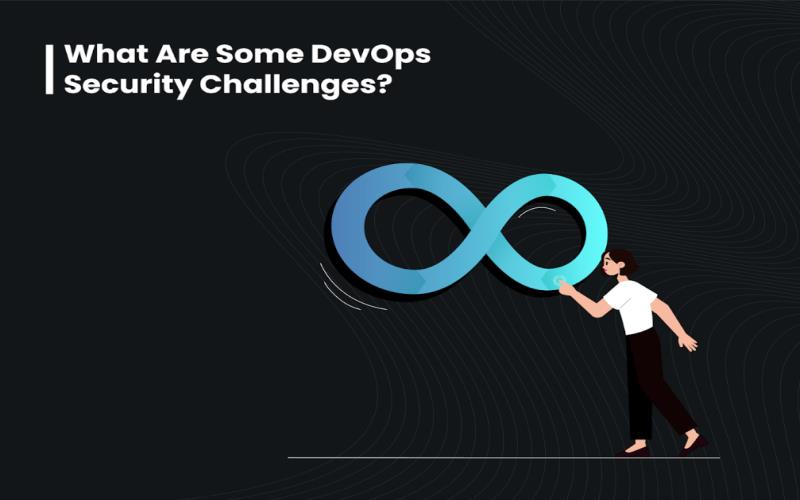DevOps has become a key tactic for expediting software development and implementation processes, boosting productivity, and spurring creativity in today’s fast-paced digital world. Notwithstanding its numerous advantages, DevOps has distinct security obstacles that enterprises need to tackle to safeguard their data and infrastructure. Our objective is to examine some of the most important DevOps security issues that businesses are now dealing with and offer workable tactics and solutions to reduce risk and improve security through the DevOps lifecycle. By looking at these issues, we enable businesses to confidently and adaptably negotiate the complex DevOps security landscape, guaranteeing the safety of their vital apps, infrastructure, and data. Come along on this journey with us as we provide you with the information and resources you need to fortify your digital platform and succeed long-term in the changing DevOps environment.
Exploring DevOps Security Challenges by Finding the Obstacles
In the constantly changing DevOps sphere, security is still a top priority. Software development benefits from DevOps’ agility and efficiency, but it also presents certain security challenges. A crucial obstacle is striking a balance between security and the quick development and deployment cycles that are characteristic of DevOps. There may be weaknesses since traditional security systems frequently can’t keep up. Integrating security procedures into the DevOps process seamlessly presents another difficulty. This entails regular evaluations, automating security testing, and fostering a security-aware culture inside development teams. But to achieve this integration, rigorous planning, administration, and dealing with institutional resistance to change are needed.
Moreover, security issues are made worse by the complexity of the contemporary software platform. The threat surface is growing due to the widespread use of microservices, containers, and cloud-native architectures, making it more difficult to detect and eliminate threats. Furthermore, a cloud environment’s shared responsibility paradigm comes with its own set of difficulties. Organizations must safeguard their apps and data while cloud providers safeguard the infrastructure, which necessitates a deep comprehension of cloud security best practices. Overcoming these DevOps security issues calls for a multifaceted strategy that includes technological advancements, societal transformation, and ongoing education. Organizations may facilitate innovation and growth by offering a secure DevOps environment through proactive identification and mitigation of security issues.
Driving Innovation Safely by Confronting DevOps Security Head-On
DevOps security concerns necessitate a delicate balancing act between strong security and agility. It is critical to maintain security consistency throughout the DevOps lifecycle in the current fast-paced software development platform. Because traditional security systems frequently cannot keep up with DevOps’ quick deployment cycles, systems are left open to threats. There are many difficulties, ranging from tracking agility to automation gaps to security considerations. Organizations must seamlessly incorporate security into every stage of the DevOps process to overcome these challenges. This includes regular inspections, computerized safety testing instruments, and a team-wide safety consciousness. Businesses can lower the risk of breaches and data leaks by recognizing urgency and resolving vulnerabilities.
The development, operations, and security teams must work together. Strong access control protocols, covert methods, and surveillance systems can all be used to increase security. It is simpler to match security objectives with operational goals when DevSecOps principles are integrating security early and often. Organizations may boost security and promote innovation and development by taking on the security challenges associated with DevOps head-on. It’s a voyage that calls for alertness, adaptability, and a dedication to put safety first without sacrificing agility.
Discovering the Superiority of Modern Software Development DevOps
DevOps security is distinct from standard security measures because of its needs in the rapidly changing software development environment and its unique methodology. The integration of proactive techniques across the software development life cycle is emphasized by DevOps security, in contrast to traditional security approaches that typically concentrate on perimeter protection and reactive measures. The velocity and regularity of deployments that define DevOps settings are two important distinctions. The continuous integration and delivery cycles in DevOps can be difficult for information security infrastructure to keep up with, potentially leading to holes in security coverage.
Moreover, DevOps security uses automation and ongoing proactive analysis to find and fix vulnerabilities instantly, guaranteeing stronger protection against changing threats. Additionally, DevOps security, which emphasizes agility, automation, and collaboration to effectively secure digital assets in today’s fast-paced, constantly-changing technology world, essentially represents a paradigm shift in security techniques.
Wrapping Up
DevOps Services promotes cooperation and shared accountability between security teams that work on implementation, development, and security. By using a collaborative approach, cross-functional teams may detect, mitigate, and reduce security risks in software development across the system, promoting a culture of security awareness. Collaborate with prime DevOps service providers and build strong security to develop your organization to newer heights and meet your operational goals.

